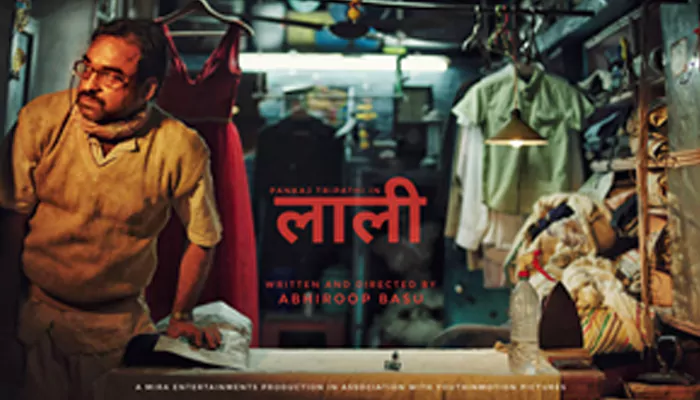
Directed by Abhiroop Basu, 'Laali' deals with a lonely man's longing for companionship.
These days, social media loves throwing around the word 'underrated'. Anything that doesn’t become a blockbuster or isn’t part of the mainstream suddenly earns that label. And if it’s even halfway decent, it’s quickly called a 'masterpiece'. By that logic, many of Pankaj Tripathi’s works outside of 'Mirzapur' are casually tagged as underrated by fans. However, if we truly understand what the word means, then undoubtedly, his short film 'Laali' deserves that crown.
In just 35 minutes, 'Laali' captures Pankaj Tripathi at his most raw and unfiltered form. Yet, despite being such a fine piece of work, the film remains unknown to many, even among his loyal fans. So, on the occasion of the actor's 49th birthday, it feels only right to revisit 'Laali' where Tripathi shines brighter than ever.
Directed by Abhiroop Basu, 'Laali' follows a middle-aged laundryman in suburban Kolkata who lives a life of repetition, ironing clothes in his cramped shop while drifting through loneliness. One day, he discovers an unclaimed red dress among the bundles of garments. That dress, vivid against the greys of his everyday, stirs memories of love and companionship that once slipped away. Through long takes, silences, and Tripathi’s nuanced performance, the film becomes less a narrative than a meditation on desire and the fragile aspects of memory.

'Laali' may run only 35 minutes, but it carries a depth that stays with you. Beneath its sparse story, the film unfolds as a study of human need and memory.
1. Loneliness
At its heart, 'Laali' is about a man adrift in isolation. The camera stays with Tripathi in long, unbroken shots, watching him iron, sit, or simply breathe in silence. The absence of dialogue heightens this solitude, making the viewer feel the weight of his empty hours.
2. The Desire for Companionship
The unclaimed red dress (as mentioned before) becomes a stand-in for human touch, or more precisely, a reminder of intimacy that once was or might have been. In the way he holds and gazes at it, the laundry man reveals a yearning for connection, however fragile or imagined.
3. The Invisibility of the Working Class
Tripathi’s character spends his days tending to other people’s clothes, smoothing out wrinkles no one notices, while his own life goes unseen. That way, the film gives space to a man society would pass by, asking us to look closely at the people who sustain everyday life.
4. Memory and the Past
The radio murmurs, the transistor on the shelf, even the rhythm of ironing - all these details carry memories of time gone by. The film shows how memory can sit in objects, like how an old song or a red dress can suddenly bring the past rushing back.
5. Time and Stillness
Abhiroop Basu resists fast cuts or dramatic turns throughout the film. Time in 'Laali' feels heavy and drawn out, almost stubborn. This stillness mirrors the character’s inner life, especially days that drag, and emotions that simmer beneath the surface, waiting to be acknowledged.

Now, what makes 'Laali' unforgettable is Pankaj Tripathi’s ability to turn stillness into drama. He barely speaks, yet throughout the film, his face and body language say everything. Each of his gestures builds a portrait of a man caught between memory and emptiness.
Tripathi dissolves into the rhythm of the laundry shop. Inside that ordinariness lies a deep ache, depicted perfectly through his performance. When he exhales while holding the dress, you sense years of silence pressing down on him. It is the crisis of a man invisible to the world, yet unable to suppress his own longing.
(Credit: JioHotstar)
And what lifts the performance further is its philosophy. Tripathi shows how desire and loneliness can live side by side, how objects can hold memory, and most importantly, how silence can roar louder than dialogue.
Happy Birthday, Tripathi Ji!